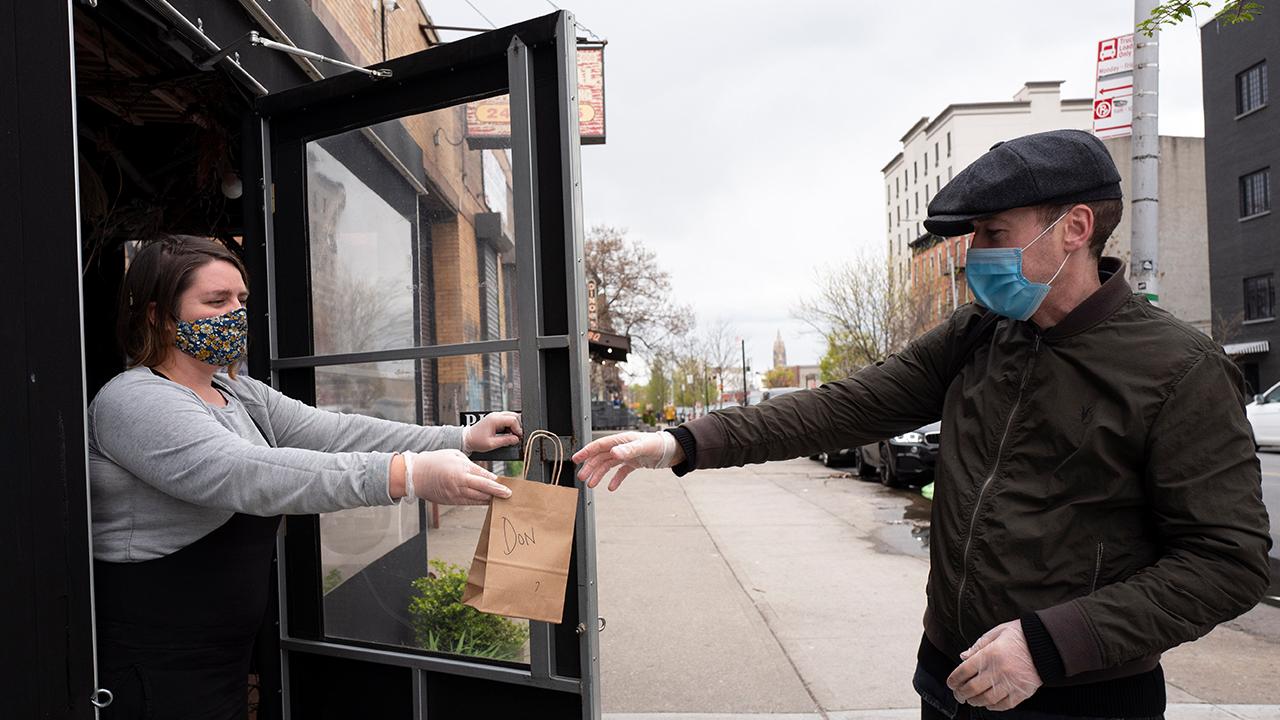Small businesses received less coronavirus aid in states dominated by big banks: Study
Nearly three times as many PPP loans were issued in the 10 states with most community banks per capita
Get all the latest news on coronavirus and more delivered daily to your inbox. Sign up here.
The share of community banks per state played a pivotal role in how many small business owners were able to secure government-backed aid to help them weather the coronavirus pandemic, according to a new study.
A significantly larger number of federal relief loans from the Paycheck Protection Program reached small businesses in states with a bigger percentage of local banks, compared to states where big banks are more dominant, a study published Thursday by the Institute for Local Self-Reliance found.
Nearly three times as many Paycheck Protection Program loans were issued in the 10 states with the most community banks per capita, compared to the 10 states with the fewest, according to the study.
For instance, North Dakota, with about 10 community banks per 100,000 people, issued about six times the national average, with banks distributing 11,000 government-backed loans or about 1,444 per 100,000 people.
On the other end of the spectrum is Arizona, with the fewest community banks per person -- just 0.2 per 100,000 people. Just over 19,000 PPP loans were made in the state or only 265 per 100,000 people. That’s five times fewer than in North Dakota.
“To some extent, these failures are a reflection of how little the megabanks pay attention to small businesses generally,” the study, authored by Stacy Mitchell, said. “In normal times, they don’t do much small business lending, in part because they aren’t very good at it. It’s a problem of scale.”
CORONAVIRUS SMALL BUSINESS BILL STILL INCLUDES LOOPHOLE FOR BIG COMPANIES
There is no fixed definition of what a community bank is; the study included all banks headquartered in the state that have less than $5 billion in assets. Even though they only make up 13 percent of the total market share, community banks provided 40 percent of small-business lending. Conversely, four big banks -- Bank of America, JPMorgan Chase, Wells Fargo and Citigroup -- control 41 percent of banking assets but distributed just 16 percent of PPP loans.
TREASURY SAYS SOME PUBLIC COMPANIES NOT ELIGIBLE FOR SMALL-BUSINESS LOANS AFTER BACKLASH
Of the big banks, JPMorgan Chase made the most, but “its volume, relative to its size, was only a fraction of that achieved by many community banks,” Mitchell wrote. The nation’s biggest bank controls more than 12 percent of total banking assets in the U.S. but accounted for only 1.6 percent of PPP loans.
GET FOX BUSINESS ON THE GO BY CLICKING HERE
The program has been criticized heavily for granting aid to big, publicly traded companies — even as small businesses languished. Last week, a series of lawsuits filed on behalf of small business owners accused some of the nation’s biggest banks, including JPMorgan Chase and Wells Fargo, of unfairly allocating government-backed loans to certain small businesses.
By reshuffling applications to frontload businesses seeking larger loans, the big banks received nearly $6 billion in processing fees, according to the lawsuit. The suits compared Small Business Administration data between April 3 and April 13 versus loan data from April 13 and April 16, when the program ran out of cash. The fund, which offers ultra-low-interest loans that are forgivable to businesses, exhausted its initial $349 funding in 13 days. Congress replenished it last week with an additional $310 billion.
CLICK HERE TO READ MORE ON FOX BUSINESS




















